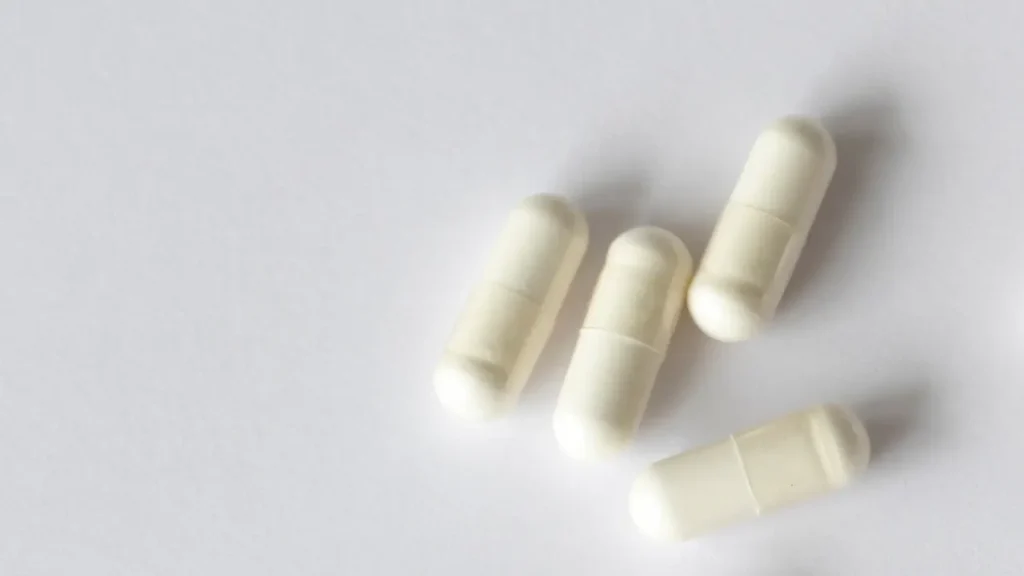Because of its numerous health-improving qualities, yucca, a plant native to the dry parts of the Americas, has been utilized in traditional medicine for millennia. Its popularity as a dietary supplement has increased recently, and different extracts made from the plant’s roots, leaves, and other parts are used for a variety of health advantages. The chemistry of yucca, its health advantages, recommended dosages, possible adverse effects, drug interactions, and ideal ethical usage are all covered in detail on this page.
You May Also Like:
5 Things to Consider When Choosing the Best Mushrooms for Mental Health
Yucca: Benefits, Dosage, Side Effects, Drug Interactions, And Other Important Information is an original (NootropicsPlanet) article.
Nature of Yucca
Yucca is a genus of perennial plants and trees distinguished by its sword-shaped, robust, evergreen leaf rosettes. Due to their vast root systems, which enable them to absorb water and nutrients, the plants are well adapted to arid regions. Yucca schidigera and Yucca filamentosa are the species most frequently utilized for medicinal purposes, while other species may also have beneficial effects on health.
Health Benefits of Yucca
The wide variety of bioactive substances in yucca contributes to its many health advantages. Several of the well-known health advantages include:
- Anti-inflammatory properties: It has been demonstrated that the polyphenols and steroidal saponins found in yucca prevent the synthesis of pro-inflammatory mediators, including prostaglandins and nitric oxide. The symptoms of arthritis and other inflammatory diseases have been linked to a reduction in these anti-inflammatory actions.
- Antioxidant qualities: Resveratrol and yuccaols, two polyphenolic chemicals found in yucca, have potent antioxidant qualities that shield cells from damage brought on by oxidative stress. These substances reduce oxidative stress by scavenging free radicals and regulating the expression of antioxidant enzymes.
- Antitumor activity: According to several studies, yucca extracts may have anticancer properties. The steroidal saponins and polyphenolic chemicals may prevent metastasis and angiogenesis as well as tumor cell growth; additionally they may induce apoptosis.
- Blood glucose regulation: In diabetic animal models, yucca has been shown to have hypoglycemic effects that lower blood sugar levels. Although the exact mechanism of action is unknown, it is believed that yucca’s steroidal saponins may improve peripheral tissues’ sensitivity to insulin and glucose uptake.
- According to research on yucca extracts, it lowers total and low-density lipoprotein (LDL) cholesterol levels and raises high-density lipoprotein (HDL) cholesterol levels. The saponin in yucca is thought to be responsible for these benefits because it can bind to bile acids and encourage their excretion, which lowers cholesterol absorption.

Chemistry of Yucca
The Asparagaceae family, which includes more than 40 species, includes yucca. Numerous phytochemicals, such as saponins, steroidal saponins, polyphenolics, resveratrol, and yuccaols, are present in the plant. These bioactive substances have shown a variety of biological activities, including antioxidant, anti-inflammatory, and anticancer characteristics, which support the yucca’s health advantages.
The group of glycosides known as saponins includes a variety of compounds with a steroid or triterpenoid aglycone (sapogenin) moiety attached to a sugar residue. The main saponins in yucca are steroidal saponins, the most prevalent of which are smilagenin and sarsasapogenin. Due to their amphiphilic characteristics, which enable them to interact with lipid bilayers and impact cell membrane permeability, these steroidal saponins display unique biological activity.
Another type of phytochemicals present in yucca are polyphenolic compounds. These substances have strong antioxidant qualities that shield cells from oxidative damage brought on by free radicals. These substances include flavonoids, phenolic acids, and lignans. Some polyphenolic substances also have anti-inflammatory and anticancer properties.
Physiological Mechanism of Action
The bioactive substances found in yucca, such as steroidal saponins and polyphenolic chemicals, are principally responsible for the plant’s wide range of health advantages. These health advantages are supported by intricate and varied physiological mechanisms that include numerous cellular and molecular pathways. Several important modes of action include:
- Anti-inflammatory properties: The steroidal saponins and polyphenolic chemicals found in yucca can reduce the levels of pro-inflammatory mediators such as nuclear factor-kappa B (NF-B) and cyclooxygenase-2 (COX-2). Yucca can reduce inflammation and pain related to inflammatory disorders by inhibiting the generation of these mediators.
- Antioxidant properties: Resveratrol and yuccaols, two polyphenolic chemicals found in yucca, are strong antioxidants that may disarm free radicals and stop oxidative damage to biological components like lipids, proteins, and DNA. Additionally, these substances have the ability to increase the expression of antioxidant enzymes like catalase and superoxide dismutase (SOD), which further shield cells from oxidative stress.
- Antitumor activity: The polyphenolic and steroidal saponin chemicals in yucca can affect several signaling pathways involved in metastasis, angiogenesis, cell proliferation, and death. For instance, yucca extracts can prevent the activation of protein kinases B (AKT) and mitogen-activated protein kinases (MAPKs), which inhibit the growth of tumor cells and trigger apoptosis (programmed cell death).
- Blood glucose regulation: To provide hypoglycemic effects, yucca’s steroidal saponins may increase insulin sensitivity and glucose uptake in peripheral tissues, including skeletal muscle and adipose tissue. Peroxisome proliferator-activated receptor-gamma (PPAR-gamma), a crucial lipid and glucose metabolism regulator, may be activated as part of this pathway.
- The yucca’s saponins have the ability to attach to bile acids in the intestine and create insoluble complexes that are expelled from the body. This process lowers the reabsorption of bile acids, which in turn lowers the enterohepatic circulation of cholesterol, lowering plasma cholesterol levels and less cholesterol absorption.
These physiological modes of action highlight the range of health advantages linked to yucca supplementation. The precise mechanisms, however, may differ based on the bioactive substances, their quantities, and the particular health issues being targeted, so it is essential to keep this in mind. More research is required to fully understand the range of yucca’s physiological effects and maximize its usage as a nutritional supplement.

Optimal Dosage of Yucca
Physiological aspects, including age, weight, and general health status of the individual, as well as the specific health advantages desired, affect the ideal dosage of yucca supplementation. Although there is no set dosage for yucca, some broad recommendations can be made.
The suggested daily intake of yucca extract for anti-inflammatory purposes is 500–1000 mg. A daily dosage of 300 to 600 mg of yucca extract has been recommended for excessive cholesterol. It is important to remember that these dosages are based on case studies and a small number of clinical trials. Therefore, those who are thinking about taking yucca supplements should speak with a healthcare provider for tailored advice.
Side Effects of Yucca
When used sparingly, yucca is generally regarded as safe for ingestion. However, some people could develop adverse effects, especially when taking large quantities. Constipation, diarrhea, and nausea are the most often reported side effects. Usually minor, these side effects go away as yucca supplementation is stopped.
Rarely, the high saponin concentration of yucca may result in hemolysis or the rupture of red blood cells. This effect is more pronounced in those with G6PD deficiency, a genetic condition that affects the enzyme in charge of shielding red blood cells from oxidative damage.

Potential Substance Interactions with Yucca
Some drugs and substances may interact negatively or ineffectively with yucca, depending on the circumstances. The following are a few possible interactions:
- Anti-diabetic drugs: Because yucca may have hypoglycemic effects, it may increase their ability to reduce blood sugar, which could result in hypoglycemia. When utilizing yucca supplements, people who are using anti-diabetic drugs should use caution and closely monitor their blood sugar levels.
- Anticoagulants and antiplatelet drugs: When used with anticoagulant or antiplatelet drugs like warfarin, heparin, and aspirin, yucca’s anti-inflammatory characteristics may raise the risk of bleeding. Before taking yucca supplements, people who are on blood thinners should speak with a doctor.
- Blood pressure drugs: Some blood pressure drugs may not work as well because of the modest diuretic effects of yucca. A healthcare provider should be consulted about yucca supplementation if the patient uses blood pressure medication.
Best Responsible Uses of Yucca
Consider the following suggestions to ensure the responsible and secure use of yucca as a dietary supplement:
- Before beginning yucca supplementation, speak with a medical professional, especially if you have pre-existing problems or are using drugs that may interact with yucca.
- To determine individual tolerance and reduce the danger of side effects, start with a modest dosage and gradually increase it.
- Using standardized yucca extracts from reliable producers to guarantee constant quality and effectiveness.
- Watch for potential adverse effects, and stop using the medication if they manifest.
Yucca:
Conclusion
While yuca offers several health benefits, consuming it as part of a varied and balanced diet is essential to reap its total nutritional value. Additionally, it is crucial to prepare yuca properly to remove any toxic compounds, such as cyanogenic glycosides, which can be harmful if consumed in large quantities. Yucca can be a nutritious and delicious addition to a healthy diet when consumed in moderation and prepared safely.
Yucca supplements offer promising potential health benefits; further research, including clinical trials, is needed to understand their efficacy fully and safety for various health conditions. It’s essential to consult with a healthcare professional before using yucca supplements, especially if you have underlying health conditions or are taking medications. Additionally, choosing high-quality yucca supplements from reputable sources can help ensure safety and effectiveness.

References:
- Therapeutic potential of yucca schidigera extract in the treatment of diabetes mellitus. Retrieved from: https://onlinelibrary.wiley.com/doi/full/10.1002/ptr.5641
- Yucca schidigera and its bioactive compounds: A review of its potential health benefits. Retrieved from: https://www.researchgate.net/publication/335218747_Yucca_schidigera_and_its_bioactive_compounds_A_review_of_its_potential_health_benefits
- Antioxidant properties of the methanolic extracts of yucca (Yucca schidigera) leaves. Retrieved from: https://www.researchgate.net/publication/273715869_Antioxidant_Properties_of_the_Methanolic_Extracts_of_Yucca_Yucca_schidigera_Leaves
- Therapeutic potential of yucca schidigera extract in the treatment of diabetes mellitus. Retrieved from: https://www.researchgate.net/publication/322430968_Therapeutic_potential_of_Yucca_schidigera_extract_in_the_treatment_of_diabetes_mellitus
- Inhibition of nuclear transcription factor-κB and activation of peroxisome proliferator-activated receptors in HepG2 cells by C-28 steroidal saponins of yucca schidigera Roezl. Retrieved from: https://pubmed.ncbi.nlm.nih.gov/22200600/
Important Note: The information contained in this article is for general informational purposes only, and should not be construed as health or medical advice, nor is it intended to diagnose, prevent, treat, or cure any disease or health condition. Before embarking on any diet, fitness regimen, or program of nutritional supplementation, it is advisable to consult your healthcare professional in order to determine its safety and probable efficacy in terms of your individual state of health.
Regarding Nutritional Supplements Or Other Non-Prescription Health Products: If any nutritional supplements or other non-prescription health products are mentioned in the foregoing article, any claims or statements made about them have not been evaluated by the U.S. Food and Drug Administration, and such nutritional supplements or other health products are not intended to diagnose, treat, cure, or prevent any disease.


